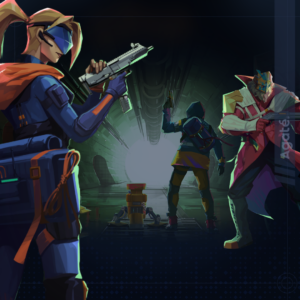In the vast world of video games, a crucial element is the backbone of every interactive experience: game mechanics. Game mechanics encompass the rules, systems, and interactions that define how a game is played. They determine the actions players can take, the challenges they face, and the goals they strive to achieve. From the simplest mobile games to the most complex open-world adventures, game mechanics shape the gameplay experience.
Game mechanics consists of a wide range of elements, including movement controls, combat systems, character progression, resource management, puzzles, and much more. These mechanics work harmoniously to create a cohesive and engaging experience for players. They form the underlying structure that brings the game world to life, enabling players to explore, overcome obstacles, and experience a sense of achievement.
Why is Game Mechanics Important?
Game mechanics play a pivotal role in shaping a video game’s overall quality and appeal. Here are several reasons why game mechanics are of utmost importance in the world of gaming:
Player Engagement
Well-designed game mechanics are essential for capturing and maintaining player interest. Game mechanics keep players invested in the gameplay by providing engaging challenges, meaningful choices, and rewarding feedback. Whether mastering a tricky combo in a fighting game or strategizing resource allocation in a simulation game, compelling mechanics create a sense of accomplishment and encourage players to continue playing.
Balancing Challenge and Reward
Effective game mechanics strike a delicate balance between challenge and reward. The mechanism creates a satisfying gameplay loop by offering progressively more challenging tasks and matching them with appropriate rewards. This balance ensures that players are consistently challenged without becoming frustrated, fostering a sense of progression and accomplishment as they overcome obstacles and achieve goals.
Immersion and Player Agency
Game mechanics allow players to immerse themselves in a virtual world and exercise their agency. When mechanics are intuitive, responsive, and consistent, they provide a sense of control and empower players to make decisions that directly impact the game’s outcome. This immersion enhances the player’s emotional connection to the game, making the experience more memorable and enjoyable.
Driving Narrative and Player Experience
Game mechanics can be instrumental in driving the narrative and shaping the player’s experience. Players can actively influence the game’s plot and character development through mechanics like dialogue choices, branching storylines, and moral decision-making. This interplay between mechanics and storytelling immerses players in a rich narrative and allows for personalized experiences, increasing the game’s replayability and longevity.
Fostering Competition and Social Interaction
Game mechanics often serve as the foundation for multiplayer experiences, fostering competition and social interaction among players. Whether through leaderboards, cooperative gameplay, or player-versus-player encounters, well-designed mechanics encourage healthy competition, teamwork, and the formation of online communities. These mechanics provide opportunities for players to collaborate, strategize, and challenge one another, further enhancing the overall gaming experience.
Here are some examples of the unique game mechanics implementation.
Code Atma
Code Atma is one of the mobile games produced by Agate. In this game, players will control mystical creatures from Indonesian mythology, called “atma,” and create a team of 6 atmas to defeat enemies. Each atma has active and passive abilities, from dealing damage to enemies, providing status buff or debuff, or performing healing. Active abilities are abilities that players activate, while passive abilities become active when certain conditions are met. For example, if an atma receives healing, it will provide a speed buff to other atmas. These passive abilities challenge players to find the best strategies for utilizing atmas that can take advantage of each other’s passive abilities. The game allows players to choose the best plan, with dozens of atmas, each possessing unique abilities.
Check the gameplay trailer here.
Valthirian Arc: Hero School Story 2
Valthirian Arc: Hero School Story 2 is another game produced by Agate that can be played on PC and Nintendo Steam, currently in early access. The game combines RPG and management genres, where players take on the role of a school principal in a hero academy. Each year in the game, players receive students with different backgrounds and unique abilities, and players decide which lessons are suitable for the students, based on the available school facilities. The lessons they receive will improve their abilities and unlock skills they can use in battles.
The school you manage will receive job requests from 4 factions, which can be completed by sending students to finish those jobs. The battle system in this game is also different from other turn-based RPGs. Typically, each character takes turns attacking, but in this game, players can determine which character they want to use on their turn. So, if the player focuses on attacking, they can continuously use characters with the best-attacking abilities to defeat enemies. This freedom provides a new dimension for players to determine the right strategies in combat.
By completing quests, the academy will receive reward resources that can be used for upgrades or for constructing new facilities in the academy. The more facilities that are built, the more academy can unlock students’ potential. As more potential students are opened, they become stronger and can take on more challenging quests, and harder quests provide more significant rewards. This gameplay loop makes Valthirian Arc: Hero School Story 2 beloved by its players.
Check the trailer here.
Conclusion
In conclusion, game mechanics form the foundation of interactive experiences, determining how players navigate and interact with virtual worlds. From promoting engagement and immersion to fostering competition and driving narratives, game mechanics are vital in creating compelling and unforgettable gaming experiences. By understanding and harnessing the power of game mechanics, developers can craft games that captivate players and leave a lasting impression in the ever-evolving landscape of the gaming industry.










